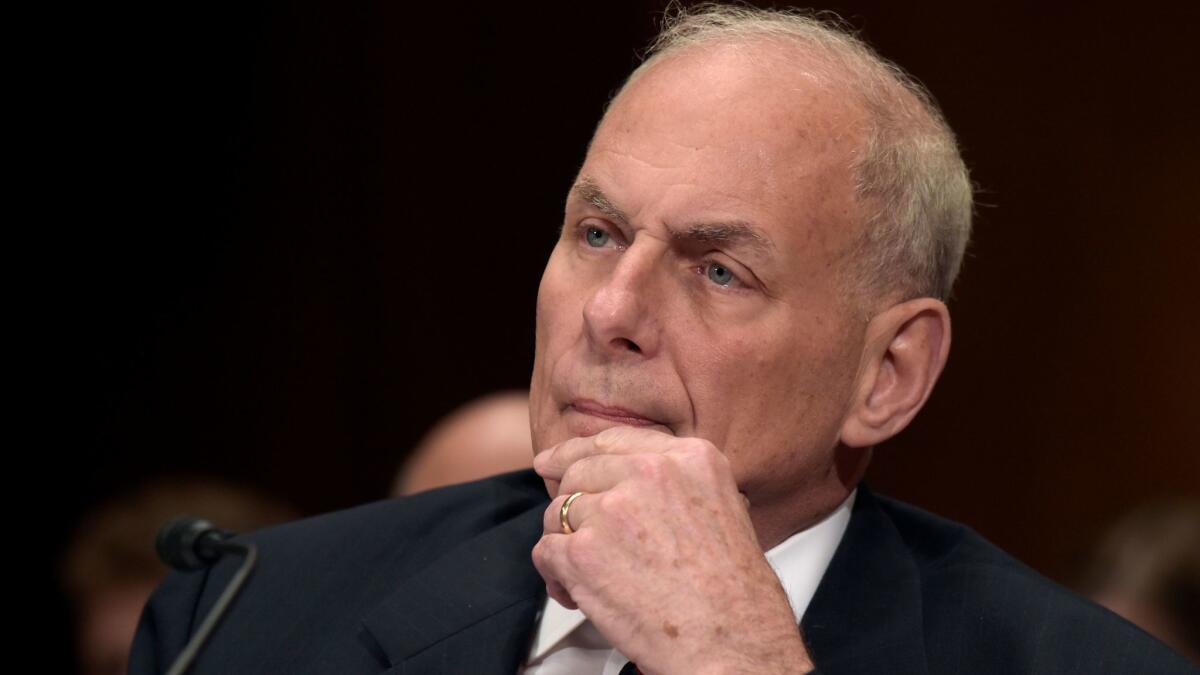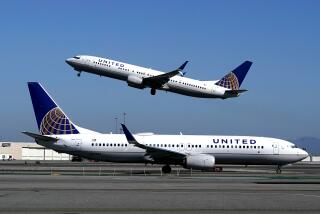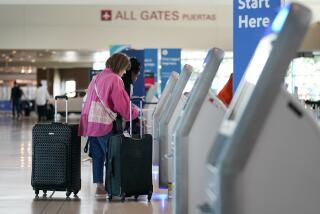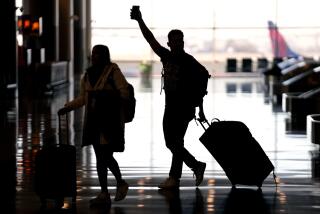Homeland Security chief considers banning laptops on all flights to and from U.S.

Homeland Security Secretary John F. Kelly said Sunday that he’s considering banning laptop computers from the passenger cabins of all international flights to and from the United States.
That would dramatically expand a ban announced in March that affects about 50 flights a day from 10 cities, mostly in the Middle East. The current ban was put in place because of concerns about potential terrorist attacks.
The ban forbids travelers from bringing laptops, tablets and certain other devices on board with them as carry-on items. All electronics bigger than a smartphone must be in checked luggage.
Kelly was asked on “Fox News Sunday” whether he would expand the ban to cover laptops on all international flights into and out of the U.S.
His answer: “I might.”
The current U.S. ban applies to nonstop U.S.-bound flights from 10 international airports in Egypt, Jordan, Kuwait, Morocco, Qatar, Saudi Arabia, Turkey and the United Arab Emirates. About 50 flights a day, all on foreign airlines, are affected.
Earlier this month, there were reports that the Trump administration would broaden the ban to include planes from the European Union, affecting transatlantic routes that carry as many as 65 million people a year.
The International Air Transport Assn., a trade group that represents 265 airlines worldwide, pushed back against that idea, suggesting that regulators instead increase the testing of passengers and their bags and electronic devices for traces of explosives, boost the use of explosive-sniffing dogs and deploy more security agents to interrogate travelers.
Banning laptops on flights would hit business travelers hardest, IATA argued, saying such a ban would keep people from working on the plane.
“Businesses will cancel trips rather than risk having laptops checked due to risk to confidential information,” IATA said in a letter to Kelly and to Violeta Bulc, the European Commission’s transport commissioner. “This would have implications for future investment and business transactions.”
U.S. officials have said that initial ban was based not on any specific threat but rather on longstanding concerns about extremists targeting jetliners. CNN reported this spring that terrorists may have developed a way to hide explosives in laptop computers that can evade commonly used airport screening methods.
“There’s a real threat,” Kelly said Sunday, adding that terrorists are “obsessed” with the idea of downing a plane in flight, “particularly if it’s a U.S. carrier, particularly if it’s full of mostly U.S. folks. It’s real.”
Kelly said that the U.S. is going “to raise the bar for, generally speaking, aviation security much higher than it is now, and there’s new technologies down the road, not too far down the road, that we’ll rely on. But it is a real sophisticated threat, and I’ll reserve making that decision until we see where it’s going.”
Meanwhile, the Trump administration’s spending plan for the budget year that begins Oct. 1 would make significant cuts to airport security programs.
Times staff writer Hugo Martin contributed to this report.
UPDATES:
May 29, 12:30 p.m.: This article was updated with comments from the International Air Transport Assn., information from a CNN report and a detail about the Trump administration’s proposed budget.
This article was originally published May 28 at 9:20 a.m.






